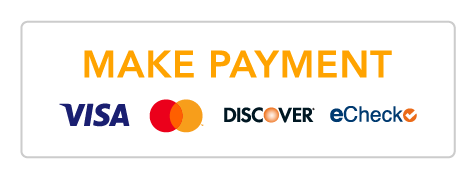A Solid Retirement Savings Option
Whatever your time horizon for retirement, the time to start saving is now. With life expectancies and inflation rising, you may find that you need to save more aggressively than you had projected.
The Individual Retirement Account (IRA) is probably the most widely known retirement savings option. Perhaps one of the biggest draws is the ability to maximize your retirement savings while minimizing your taxes. With some IRAs, this is accomplished by allowing you to contribute pre-tax dollars, so you have the possibility of compound earning. With another, qualified withdrawals are tax-free.
IRAs also allow you to invest your contributions in various investments available through your IRA provider. Your provider then acts as the custodian of your account, investing the money as you instruct and providing updates on your account value.
Things to Know When Contributing to an IRA:
- You cannot contribute more than you earn.
- If you were divorced prior to 12/31/18, you can count alimony as earned income.
- If you or your spouse are non-working, whoever is employed can contribute to a spousal IRA on their behalf.
- If you and your spouse both earn income, each of you may contribute to your own IRA.
- You can contribute to an IRA even if you are also enrolled in another kind of retirement-savings plan through your employer.
- If you are eligible for an employee retirement plan at work, there are limits to how much you can contribute to an IRA based on your income and marital status.
There are three main types of personal IRAs—Traditional, Roth and Rollover, and they all boast different tax advantages.
Traditional IRAs
A Traditional IRA is an individual retirement savings arrangement governed by Internal Revenue Code Section 408(a). Traditional IRA accounts are funded with deductible and/or non-deductible contributions based on your adjusted gross income. Participation in an employer-sponsored qualified retirement plan may also impact the deductibility of your contribution. Traditional IRA plans are best suited for individuals who want to save for retirement on a tax-deferred basis or for high-salary earners in higher tax brackets, not already participating in a company plan, who need a current tax deduction. In combination with an employee-sponsored retirement 401(k), IRAs create a substantial platform for retirement savings.
Roth IRAs
The Roth IRA is an individual retirement savings arrangement funded with after-tax (i.e., non-deductible) contributions based on compensation and is governed by Internal Revenue Code Section 408(a). Earnings grow potentially tax-free. Unlike the Traditional IRA, a Roth IRA does not have an age restriction. Any individual with “compensation” that falls within certain income limits can contribute to a Roth IRA. Roth IRA contribution limits are not impacted if an individual is covered by an employer-sponsored plan.
Roth IRA accounts are best suited for individuals wishing to save for retirement by trading tax savings now for tax-free withdrawals later and for clients who anticipate being in a higher tax bracket upon retirement.
Rollover IRAs
A Rollover IRA is a Traditional IRA often utilized by those who have changed jobs or retired and accumulated assets in their employer-sponsored retirement plan, such as a 401(k). Deciding what to do with your retirement assets could determine whether you’ll be secure in retirement or struggle to make ends meet. Moving your 401(k) or rolling it over into an IRA account may provide you with a broader range of investment options not available in your employer 401(k). It also offers greater flexibility in ongoing asset management within an IRA.
When moving a retirement plan to an IRA, you typically will have three options and each option has its own set of advantages and considerations.
- Leave the money with the former employer, if permitted.
- Roll over assets to the new employer, if permitted; or
- Roll over to an IRA or cash out the account value.
*Both qualified retirement plans and IRAs typically involve fees, expenses, and services that should be compared when considering a qualified plan rollover.
At Thielen & Associates, Inc., we understand the importance of retiring with financial dignity. We are prepared to help you find retirement solutions and look for opportunities that help increase the chance you don’t outlive your retirement income.


